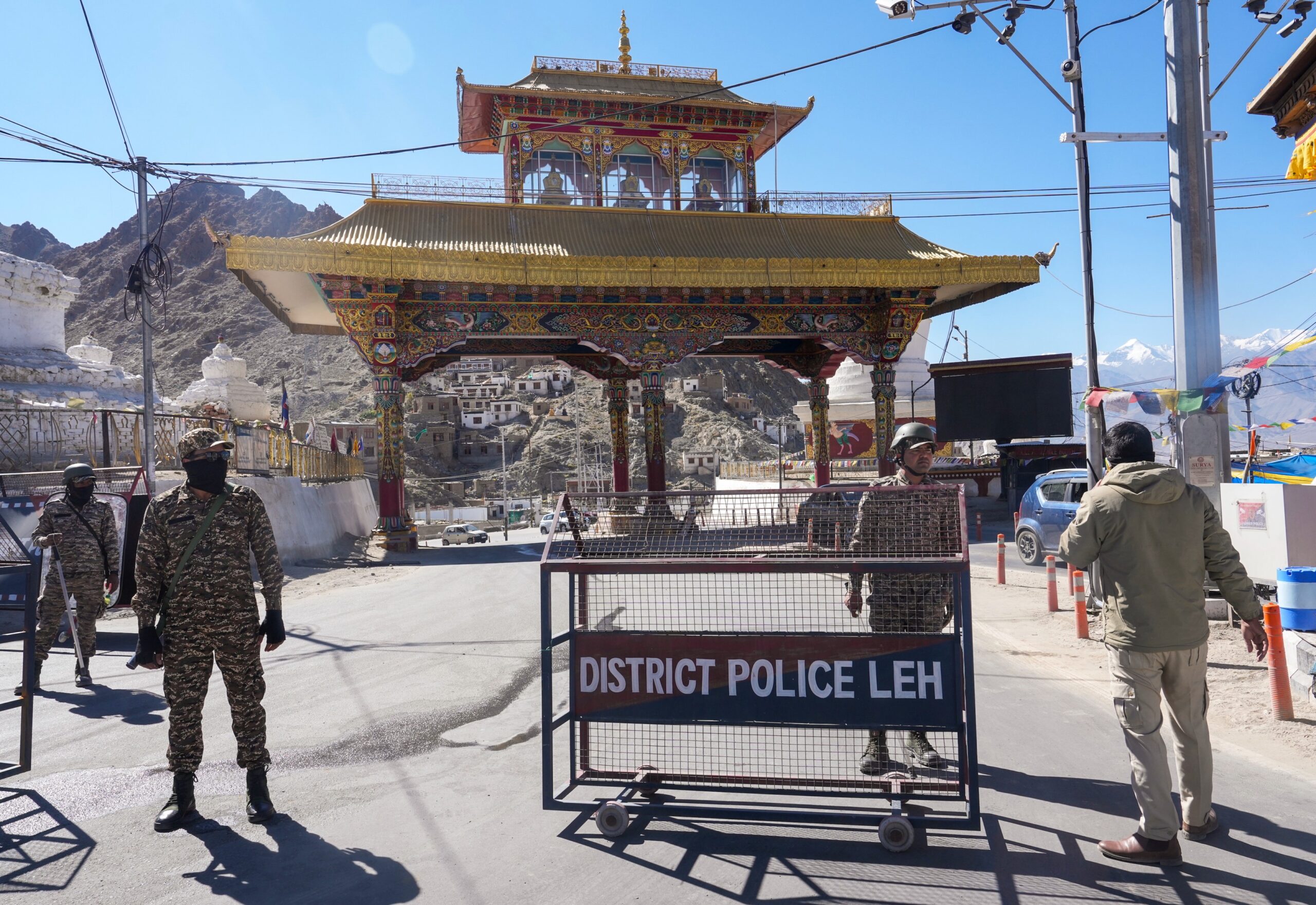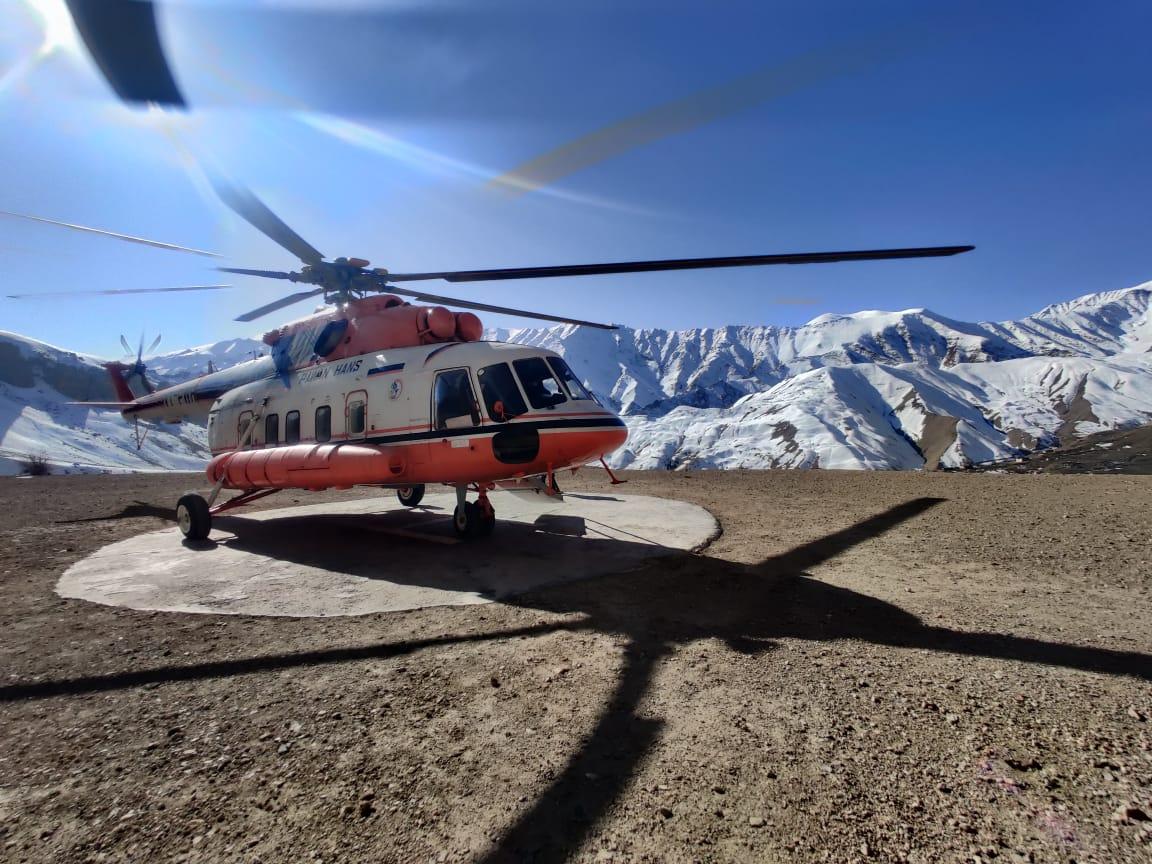Ladakh Crisis 2025: Leh Firing, Statehood Demands & Political Fallout
By: Javid Amin | 01 October 2025
Leh Firing Sparks National Outcry
On September 24, 2025, the serene landscapes of Leh were shaken when police opened fire on peaceful protesters demanding statehood and Sixth Schedule protections for Ladakh. The violent confrontation claimed four lives, including that of Kargil war veteran Tsewang Tharchin, and left over 80 injured.
The incident has sparked nationwide outrage, highlighting the deep-seated grievances of Ladakh’s tribal communities and setting off a political firestorm involving national leaders, civil society, and the media.
The Flashpoint: Leh Protests Turn Deadly
The Protest
Thousands of citizens, youth groups, tribal leaders, and ex-servicemen assembled in Leh to demand:
-
Full statehood for Ladakh
-
Constitutional protections under the Sixth Schedule
-
Recognition of tribal land rights
-
Environmental safeguards and development guarantees
Eyewitness accounts suggest that the protest was largely peaceful until a section of demonstrators clashed with security personnel near administrative buildings and the BJP office.
The Police Firing
Authorities claim police resorted to gunfire after barricades were breached, though protesters insist the force was excessive and unprovoked.
Casualties included:
-
Tsewang Tharchin, veteran of the 1999 Kargil War and Siachen operations
-
Three local youth
Property damage included torched vehicles, administrative buildings, and disruptions to local business. The incident escalated tensions between Leh and Kargil regions, highlighting fractures in governance and representation.
National Leadership Reacts
Rahul Gandhi: Condemning the Violence
Congress leader Rahul Gandhi, speaking from South America, condemned the firing and mourned the death of Kargil war veteran Tsewang Tharchin.
“Father in the army, son in the army—patriotism runs in their blood. Yet the BJP government shot and killed this brave son of the nation,” Gandhi said. He demanded an impartial judicial inquiry and the strictest punishment for those responsible.
Congress leaders, including Mallikarjun Kharge and Jairam Ramesh, reinforced Gandhi’s stance, asserting that the central government exploited Ladakh politically while abandoning its people during crises.
Omar Abdullah: Defending Congress and Tribal Voices
Former Chief Minister Omar Abdullah criticized the BJP-led administration for centralizing power and alienating Ladakh’s communities. He defended Congress councillors and called for dialogue instead of top-down governance.
“Had the Congress been so powerful that it could cause riots in Ladakh, why didn’t it win the council elections?” Abdullah asked, dismissing claims of political provocation.
Omar emphasized the need to restore trust, engage youth, and honor constitutional promises, warning that further negligence could escalate unrest across J&K and Ladakh.
BJP Response: Sunil Sharma Fires Back
BJP’s Leader of Opposition in J&K Assembly, Sunil Sharma, accused Omar Abdullah of weaponizing anti-BJP rhetoric for electoral gains.
-
Alleged that Congress councillor Phuntsog Stanzin Tsepag made provocative speeches that fueled tensions
-
Warned that opposition rhetoric is aimed at polarizing communities ahead of the October 13 Assembly session
-
Claimed Omar’s defense of such figures signals a deeper strategy to revive divisive politics
This political clash underscores how Ladakh’s crisis has become a national debate on governance, representation, and electoral strategy.
Background: Ladakh Since Article 370 Abrogation
Union Territory Transformation
The abrogation of Article 370 in August 2019 stripped Jammu & Kashmir of its special status, carving Ladakh into a separate Union Territory without a legislature. This left the region politically underrepresented and frustrated many tribal communities.
Promises and Unmet Demands
The unrest stems from long-standing grievances, including:
-
Delay in implementing Sixth Schedule protections for tribal autonomy
-
Uncertainty over land and environmental safeguards
-
Lack of engagement with youth and civil society
-
Delayed or absent statehood restoration
These issues created a trust deficit, culminating in the September 24 protest and subsequent firing.
Civil Society and Veteran Responses
-
Tribal Leaders: Called for accountability, rejecting police claims of provocation
-
Students & Youth: Demanded safety, identity protection, and constitutional justice
-
Ex-Servicemen: Condemned violence against veterans, demanded proper inquiry
-
NGOs & Activists: Criticized the detention of Sonam Wangchuk as scapegoating, not a solution
The incident also triggered social media outrage, amplifying calls for justice, transparency, and reform in Ladakh governance.
Administrative and Law Enforcement Response
-
Curfew: Imposed partially in Leh and Kargil to prevent further unrest
-
Detentions & FIRs: Over 50 individuals detained, FIRs filed against protesters and outsiders
-
Sonam Wangchuk Arrest: Climate activist detained; NGO SECMOL’s FCRA license suspended
-
Investigation: Multi-agency probe ordered into Leh firing, financial records, and administrative lapses
Civil rights observers warn that heavy-handed policing risks deepening alienation and may provoke further unrest.
Political Implications Ahead of Assembly Session
The October 13 J&K Assembly session is expected to be dominated by:
-
Debates over Ladakh statehood and Sixth Schedule protections
-
Accountability for Leh firing and administrative lapses
-
Restoring trust in governance among tribal communities
Both opposition and ruling parties are positioning strategically:
-
Congress and NC: Claiming to defend tribal rights and regional dignity
-
BJP: Seeking to justify governance and manage political fallout
Civil society and veterans’ groups are increasingly influential, demanding not just justice but structural reform.
Reformist Lens: People Before Territory
Leaders like Omar Abdullah emphasize that governance must prioritize citizens’ aspirations over political symbolism:
-
Dialogue over suppression
-
Restoration of constitutional promises
-
Inclusive policymaking for youth and tribal groups
-
Transparency and accountability in administration
Rahul Gandhi’s stance aligns with this approach, highlighting human dignity, accountability, and impartial inquiry as essential for long-term peace.
Bottom-Line: Ladakh at a Crossroads
The September 24 Leh firing has underscored structural and political deficiencies in Ladakh governance:
-
Statehood and Sixth Schedule protections are central to identity, not just administrative reforms
-
Political accountability is under scrutiny, with BJP, Congress, and NC vying for narrative control
-
Civil society and ex-servicemen have emerged as crucial voices for justice and dialogue
How the central and local governments respond in the coming weeks will determine whether Ladakh experiences inclusive governance and peace, or continued unrest and mistrust.



